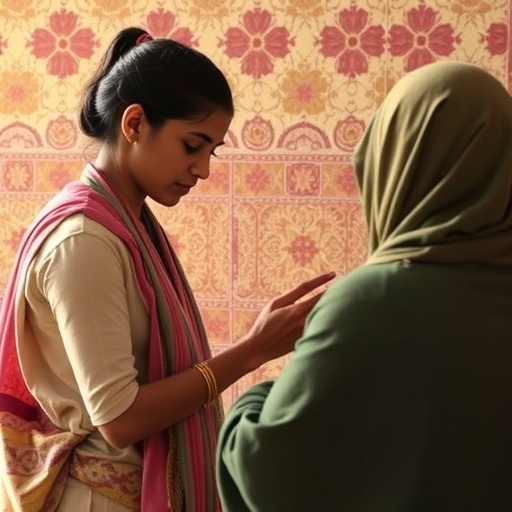In the realm of healthcare policy, one of the most ambitious goals for nations around the globe has been the implementation of Universal Health Coverage (UHC). Egypt, a nation with a rapidly evolving health landscape, stands at the forefront of this movement as it embarks on implementing UHC aimed at providing accessible healthcare for its entire populace. A recent qualitative study sheds light on the perspectives of various stakeholders involved in this critical endeavor. This research is vital as it not only navigates the complexities of policy implementation but also highlights the real-world challenges faced by the government and its citizens.
The study, conducted by esteemed researchers Hammad et al., delves into the experiences and opinions of individuals who play significant roles in the implementation of UHC in Egypt. Utilizing qualitative research methods, the authors synthesized insights from healthcare professionals, policymakers, and community representatives, offering a rich landscape of viewpoints that encompass both hopes and concerns surrounding this initiative. The qualitative nature of the study provides depth, revealing the nuanced realities that numbers alone cannot convey.
One interesting aspect highlighted is the government’s commitment to achieving UHC as part of its broader social justice agenda. The respondents shared a range of optimistic sentiments about the transformative potential of UHC, emphasizing its ability to bridge gaps in healthcare access among underserved populations. Notably, healthcare equity emerged as a central theme in the discussions, with stakeholders passionately advocating for a system that does not leave anyone behind, regardless of socio-economic status.
However, the study equally unveiled the challenges that threaten the successful roll-out of UHC. Stakeholders voiced concerns over systemic issues, including inadequate funding and resource allocation, particularly in rural and marginalized urban areas. Participants pointed out that the disparities in healthcare access within Egypt could exacerbate existing inequalities if not addressed promptly and effectively. As the research shows, the trajectory of UHC implementation will depend significantly on the government’s ability to tailor its strategies to meet these diverse needs.
Another crucial point emphasized in this qualitative analysis is the necessity for continuous dialogue among stakeholders throughout the UHC implementation process. The participants called for enhanced communication channels between the government and healthcare providers to ensure that the voices of those on the front lines are heard and addressed. This feedback loop is essential for fostering a collaborative atmosphere that can adapt to changing demands and challenges.
Furthermore, the study underscored the importance of public awareness and education in making UHC a success. Stakeholders articulated that the general populace needs to understand their rights and responsibilities within the UHC framework. They conveyed a sense of urgency in creating educational campaigns to empower citizens as active participants in their health care journey, ultimately leading to improved health outcomes across the board.
As the research concluded, many participants stressed the significance of building a robust healthcare workforce. This involves not only training new healthcare professionals but also retaining existing staff, promoting their well-being, and ensuring their input is integrated into the policy-making process. A well-prepared workforce is considered a pillar upon which UHC will stand, enhancing the quality of care delivered to the population.
The geopolitical context of Egypt also plays a crucial role in the implementation of UHC and was a matter of discussion among stakeholders. There were insights shared regarding how economic, social, and political factors can either facilitate or hinder progress. For instance, the economic ramifications of the COVID-19 pandemic were referenced, highlighting how the immediate health crisis necessitated a reevaluation of health policies and resource distribution to align with the urgent need for accessible healthcare.
Stakeholders expressed hope that the experiences gleaned from implementing UHC could serve as a model for other countries in similar socio-economic contexts. They believe that lessons learned through both successes and challenges could offer valuable insights globally, especially for nations striving to develop or refine their healthcare systems.
In summary, the qualitative study conducted by Hammad et al. provides a comprehensive overview of the multifaceted perspectives on the UHC implementation in Egypt. By collating insights from various stakeholders, the authors exposed the intricate dance of optimism and concern, underscoring the critical factors influencing the future of healthcare access in the nation. This research not only advances our understanding of the local context but also speaks to a global audience, emphasizing that the quest for Universal Health Coverage is a shared endeavor, demanding collaboration, resilience, and a commitment to equity in healthcare.
As the landscape of healthcare continues to evolve, the insights gained from stakeholders in Egypt’s UHC initiative may indeed help forge pathways for sustainable health systems worldwide. As nations grapple with their health policies, the experiences captured in this qualitative study can act as a beacon of hope, guiding others toward a more inclusive and equitable future in health care.
Subject of Research:
Universal Health Coverage implementation in Egypt from stakeholders’ perspectives.
Article Title:
A qualitative study of the government’s implementation of the Universal Health Coverage in Egypt: stakeholders’ perspective.
Article References:
Hammad, A.S., Fouad, A.M., Aboushady, A.T. et al. A qualitative study of the government’s implementation of the Universal Health Coverage in Egypt: stakeholders’ perspective.
Health Res Policy Sys 23, 150 (2025). https://doi.org/10.1186/s12961-025-01412-x
Image Credits: AI Generated
DOI: https://doi.org/10.1186/s12961-025-01412-x
Keywords:
Universal Health Coverage, Egypt, healthcare access, stakeholders, qualitative study, health policy, health equity, health workforce, public awareness.
Tags: challenges in healthcare accesscommunity representatives opinionsEgypt health system evolutiongovernment commitment to social justicehealthcare equity and accessibilityhealthcare policy implementationhealthcare professionals insightspolicymakers views on UHCqualitative research in healthcarestakeholder perspectives on UHCUHC implementation challenges in developing countriesUniversal Health Coverage in Egypt





